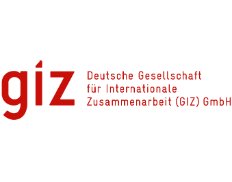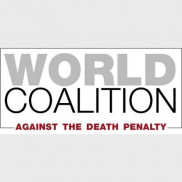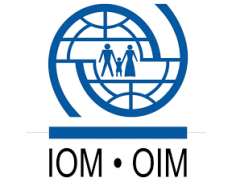The Deutsche Gesellschaft für Internationale Zusammenarbeit (GIZ) GmbH is a state owned organisation. We work worldwide in the field of international cooperation for sustainable development. GIZ International Services (InS) is an integral division of GIZ.
We offer the experience, the regional and technical know-how of GIZ in the global market and provide international clients with expertise in terms of economic and result-oriented services.
GIZ International Services is currently implementing a project in Ethiopia : Technical Assistance Unit (TAU) – Support to Criminal Justice Reform in Ethiopia Funded by the European Union
Assignment:
Conducting final (follow-up to the baseline) survey for comparison of the changes in the programme indicators.
Related TAU Results
Output 3: Developed project management, coordination and oversight of the project
Output Indicator: 3|1 3.1. Baseline survey and follow up survey conducted
Activity 3.6: Implementing the overall technical and financial monitoring and evaluation
Introduction and background
General Context
Following the reform process started in 2018 with the appointment of Dr. Abiy Ahmed as Prime Minister, Ethiopia is going through unprecedented political transformation process with both desirable and undesirable results witnessed 6 years down the road. The process that started with the introduction of sweeping democratic, civic and media spaces proceeded covering the Rule of Law sector including the lifting of the prior state of emergency, the release of political prisoners, the removal of restrictions on media and the replacement of many leaders heading the army, federal security and judicial institutions. In 2019, the government also appointed a previously active opposition woman leader as Chair for the National Election Board of Ethiopia (NEBE), approved a new Organization of Civil Societies Proclamation, replacing the previous 2009 Charities and Societies Proclamation. Once again, both foreign and foreign-funded civil society organisations (CSOs) are allowed to engage in Human Rights work and their right to self-regulation has been strengthened.
The excitement and hope in the air then was also because of the wide-ranging reforms towards upgrading the justice system commenced with the appointment of a woman Attorney General and the establishment and launching of a Legal and Justice Affairs Advisory Council (LJAAC) in July 2018 under the Office of the Federal Attorney General (now, Ministry of Justice) and a Judicial System Reform Advisory Council under the Federal Supreme Court. The LJAAC (whose mandate has since expired) identified the criminal justice system as a key area for the introduction of reforms. This process yielded a diagnostic study on Ethiopian criminal justice, a revised law which established the federal prison commission (Proc No 1174/2019), a draft law on criminal procedure and the law of evidence, which introduces among others restorative justice approaches (including diversion, compensation, plea-bargaining and alternative sentencing), and prosecution-led criminal investigation.
Six years later, Ethiopia and the reform process it is going through have found themselves in the two extremes of results depending on which angle one sees from: success with tangible and visible political, economic and social gains in the face of persistent conflicts, COVID-19 pandemic, inflation, political polarization and diplomatic and ethnic tensions.
The Justice Sector
The 1995 FDRE Constitution, opted for a dual legal and justice system establishing Federal and State courts of three tiers at the federal government and at the regional government level as well as Federal and State/Region Police Forces and Prisons. Regional states have extensive powers, inter alia, to enact and execute state constitutions and other laws, to protect and defend the Federal Constitution. The states are governed by elected representatives known as regional and district administrators and are considered chief executive officers governing their respective sub-divisions.
The Federal Constitution provides a comprehensive legal framework that confers explicit Human Rights anchored to the Universal Declaration of Human Rights and other international standards. It encompasses principles such as popular sovereignty, the supremacy of the constitution, respect for human and democratic rights and transparency and accountability of the government. Its preamble underlines the will of the state to build a community founded on the Rule of Law, Human Rights, lasting peace, democratic order, social and economic development.
The reform of the criminal justice system in Ethiopia and the support programmes like that of the Support to Criminal Justice Reform Process in Ethiopia financed by the EU had to navigate through the complex layers of the chain to bring about changes in improving the access to justice by all. Identifying the changes in this aspect attributed to this programme relative to the baseline situation are all about this ToRs.
Police/Prosecution Collaboration in Ethiopia – Background
Lack of coordination between the police and prosecution in crime investigation has been a key challenge of the criminal justice sector in Ethiopia. Though attempts have been made to strengthen coordination through numerous reform efforts, these were mostly focused on the handling of specific crimes, mostly on ad hoc basis. At baseline stage, there was no directive or system of operation that guides such coordination. Based on this major finding at the baseline stage, the programme planned to enhance the coordination efforts through supporting the establishment and follow-up of a Justice Sector Steering Committee (JSSC).
Generally, cooperation between the police and prosecution has mostly been dependent on the relation between the heads of the two offices at local level. The issue has all been, then, to institutionalize the cooperation of the Justice sector. With the understanding that collaboration of the justice stakeholders is critical to the achievement of rule of law, justice for all and respect of human rights, the TAU made enhancing horizontal and vertical coordination, collaboration, and cooperation between key criminal justice institutions as one of the three specific objectives. The baseline survey findings indicated that coordination and collaboration among justice institutions (vertical and horizontal) is regarded as weak. At baseline stage, the Justice Sector Steering Committee (JSSC) was not established by law, has no budget, and operates based on a common agenda and implementation roadmap. Coordination with regions mainly handled through “Joined up justice forums” involving justice institutions at Federal and Regional level. This final survey is to find out if there has been any improvement in this aspect, possibly indicating programme attribution to the results.
EU Support to Criminal Justice Reform in Ethiopia
Governance, justice, rule of law and Human Rights are at the core of the EU’s development agenda. The rule of law (enshrined in Article 2 of the Treaty on the European Union) is a prerequisite for protecting fundamental rights and democracy but requires independent, quality and efficient national justice systems.
Consequently, and in support of the reform agenda, the EU supports the Ethiopian Criminal Justice and Governance sectors in several ways and the programme to which this assignment applies is known as the “Support to Criminal Justice Reform in Ethiopia programme (SCJRP).” The overall objective of the programme is to increase rule of law, respect for human rights and access to justice for all. The programme commenced with a formal signing of a 3-year grant agreement on 19 March 2021 with the Ethiopian Human Rights Commission (EHRC). The Technical Support element which is designed to support the entire programme commenced a 4-year cycle on 15 October 2021.
It has been identified that several key institutions critical to the success of criminal justice reforms are desirous and require support to deliver the broader reform programme. Under this programme, those institutions are the Ministry of Justice, the Federal Supreme Court, the Ethiopian Human Rights Commission, the Ethiopian Federal Police and relevant CSOs operating in the sector.
To achieve the objective, the programme has three interlinked and mutually supportive Specific Objectives (outcomes):
- Enhanced horizontal and vertical coordination, collaboration, and cooperation between key criminal justice institutions.
- Increased effectiveness, efficiency, fairness, and accountability of the criminal justice system.
- Improved access to justice for all the poor, women and other groups in vulnerable situations.
The programme is being implemented via direct grants to:
- The Federal Supreme Court to enable the Court to implement judicial reforms.
- The Ministry of Justice to:
- support the Office in the implementation of reforms included in new law and policies.
- allow the Office to play its role in developing new legislation including working manuals on legal aid and in the establishment of a forum of legal aid service providers and monitoring and evaluation of these services.
- The Ethiopian Human Rights Commission to:
- Continue to play its oversight role, to provide redress for victims of human rights violations and to hold justice institutions to account.
- Enhance its role in the coordination of the provision of legal aid by NGOs and university-based law clinics.
The programme has also awarded a competitive grant to United Nations Office for Drug and Crime (UNODC)-led Consortium for the provision of legal aid; to provide capacity building of legal aid service providers and/or create networks or coalitions, and to monitor and evaluate the progress of the services offered.
The Technical Assistance Unit (TAU) is responsible for the day-to-day implementation and management of the entire programme and providing ongoing technical advice and assistance to all programme beneficiaries, including but not limited to legal advice and assistance, research, monitoring and evaluation assistance, financial management assistance, and capacity development activities such as training, mentoring / coaching and handholding.
There are about 35 activities under three outputs that the TAU is committed to achieve. Output 3 on developed project management, coordination and oversight of the project, is to be measured by, among others, its respective indicator 3.1., baseline survey and follow-up/final surveys are conducted. Towards achieving this output, there is an Activity 3.1. on implementing the overall technical and financial monitoring and evaluation.
Since the first part of the indicator 3.1., conducting baseline survey, has already been achieved during the inception period, a follow-up/final survey needs to be conducted towards the end of the project. Accordingly, this ToR for a Senior Non-Key Expert (SNKE) is describing the objectives, scope, specific tasks and requirements for this assignment of conducting a follow-up/final survey against the programme indicators set. (Ref. Annex II for the list of indicators and their baseline values – Sep. 2022)





